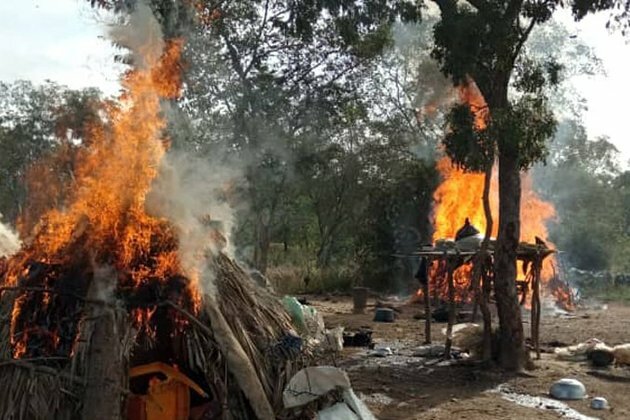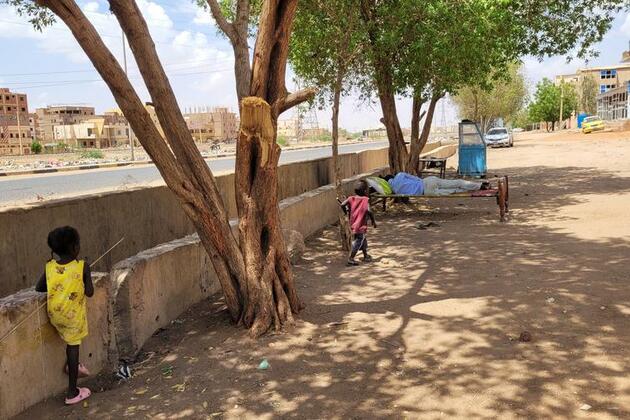What can be done to fight rural banditry in northern Nigeria
The Conversation
12 Sep 2019, 18:05 GMT+10

Banditry is on the increase in northern Nigeria. This is a region with many security problems, chief among them Boko Haram's insurgency. In the north-central region, herdsmen militancy has become a key security concern. Northwest Nigeria, which used to be the bastion of security and stability, has been hit hard by rural banditry.
I have explored this situation and its attendant threat in my research.
Rural banditry refers to armed violence driven principally by the criminal intent to steal and plunder. It is motivated by the quest for economic accumulation. The victims are individuals and communities with material valuables. The most common examples of rural banditry in Nigeria are armed robbery, kidnapping, cattle rustling and village raids.
Rural banditry in the northwestern states of Zamfara, Kaduna and Katsina has reached alarming heights in recent years. Bandits terrorise villages with impunity. They have actually settled in the Zamfara state, setting up fortified enclaves in the hinterland and on the frontiers, from where they plot and carry out their operations.
What drives rural banditry?
Crime thrives in contexts where there's little deterrence. In most of Nigeria's rural communities, there are many opportunities for criminal activity. For one thing, some of these communities are located in remote areas where there is little or no government presence. More importantly, households are in some cases separated by and interspersed with forest areas. This renders them vulnerable to banditry.
This situation is made worse by the absence of effective community policing mechanisms capable of addressing the hinterlands' peculiar security challenges.
In effect, the incidence and prevalence of rural banditry in northwest Nigeria raises a fundamental question about the government's ability to govern effectively. The state security machinery has so far failed to tackle the scourge of banditry. This failure stems from a lack of political will and operational challenges.
Essentially, the prevailing socio-existential conditions in northwestern Nigeria have complicated the security situation. The rural pastoral sector is not well regulated. Illicit artisanal mining and the proliferation of arms in the region are also veritable factors.
Geography plays a role, too. Northwestern Nigeria's forestlands are vast, rugged and hazardous. They are also grossly under-policed. Some of the forests run alongside the diverse porous borderlines on the region's frontiers. Borders are poorly delineated, under-policed and thus not well governed. The consequence of this is an abundance of nefarious activity, often facilitated by criminal syndicates.
Rural banditry in northwestern Nigeria also derives impetus from the poorly governed mining and small arms sector. Bandits have been drawn to the region by illicit and artisanal mining in states like Zamfara where bandits have been raiding mining sites for gold and cash.
The federal government has recognised the apparent linkage between rural banditry and illicit mining. It suspended all forms of mining in Zamfara State in early April of 2019.
Transhumance - the movement of cattle - is poorly regulated. This has seen it being infiltrated by criminals, which has led to the intensification of cattle rustling in the region. In states such as Kaduna, Katsina, Zamfara and Kebbi, there exists a clan of livestock bandits who specialise in mass cattle raids.
While some of these cattle rustling gangs are affiliated to local and transnational syndicates, a number of them are mercenaries of Boko Haram. Cattle rustling constitutes a valuable source of funding for the terror group.
Impacts, implications and solution
Banditry and other causes of insecurity in northern Nigeria have been allowed to degenerate into a complex national emergency with dire territorial implications. This mirrors exactly what happened with the Boko Haram insurgency. From sporadic incidents, Boko Haram began launching systematic attacks targeted at individuals, communities and, eventually, the state.
There's no more effective solution than forceful inland and frontier policing. Such policing must deal with the region's peculiar circumstances of diverse borderlines, forestlands and hinterlands. This requires a tactical synergy between grassroots vigilantes and the state security operatives.
The federal government's current counter banditry effort, based on military reconnaissance and raids, is good and commendable. But it has failed to bring about the needed respite, owing largely to the operational challenges arising from insufficient knowledge of the terrain. This makes the involvement of local vigilantes and community watch groups, who have a better knowledge of the terrain, more important.
However, to guard against possible excesses and abuse, people in these structures must be properly trained, equipped and supervised. The way forward, then, is the development of grassroots policing, enriched by local personnel and intelligence.
The success of the Civilian Joint Task Force, comprising local vigilantes and volunteer neighbourhood watchers, in combating the Boko Haram insurgency in the lower Lake Chad Basin shows the possible value of this sort of community policing.
Author: Chukwuma Al Okoli - Lecturer/Resident Researcher Department of Political Science, Federal University Lafia 
 Share
Share
 Tweet
Tweet
 Share
Share
 Flip
Flip
 Email
Email
Watch latest videos
Subscribe and Follow
Get a daily dose of Zimbabwe Star news through our daily email, its complimentary and keeps you fully up to date with world and business news as well.
News RELEASES
Publish news of your business, community or sports group, personnel appointments, major event and more by submitting a news release to Zimbabwe Star.
More InformationInternational
SectionTravelers can now keep shoes on at TSA checkpoints
WASHINGTON, D.C.: Travelers at U.S. airports will no longer need to remove their shoes during security screenings, Department of Homeland...
Rubio impersonator used AI to reach officials via Signal: cable
WASHINGTON, D.C.: An elaborate impersonation scheme involving artificial intelligence targeted senior U.S. and foreign officials in...
Warsaw responds to migration pressure with new border controls
SLUBICE, Poland: Poland reinstated border controls with Germany and Lithuania on July 7, following Germany's earlier reintroduction...
Deadly July 4 flash floods renew alarm over NWS staffing shortages
WASHINGTON, D.C.: After months of warnings from former federal officials and weather experts, the deadly flash floods that struck the...
Putin fires transport chief, later found dead in suspected suicide
MOSCOW, Russia: Just hours after his sudden dismissal by President Vladimir Putin, Russia's former transport minister, Roman Starovoit,...
Thousands gather in Himalayas as Dalai Lama celebrates 90th birthday
DHARAMSHALA, India: The Dalai Lama turned 90 on July 6, celebrated by thousands of followers in the Himalayan town of Dharamshala,...
Africa
Section"Very bad sign of things escalating in Canada, Carney's first major test on security": Canadian journalist on Kap's Cafe attack
Vancouver [Canada], July 11 (ANI): Canadian journalist Daniel Bordman called the attack on a cafe owned by comedian Kapil Sharma a...
A glimpse into Sudanese life amid scorching summer heat
KHARTOUM, July 10 (Xinhua) -- It was 2 p.m. in a displacement camp on the outskirts of Port Sudan, where the relentless sun had already...
BRICS in Rio: From Global South to global power
The 17th BRICS summit was more than a photo op. It was a coordinated rejection of Western power and a declaration of intent A few...
What just happened in Rio should terrify the West
The 17th BRICS summit was more than a photo op. It was a coordinated rejection of Western power and a declaration of intent A few...
"Brian Lara told me that I should have tried to break record": Wiaan Mulder reflects
New Delhi [India], July 11 (ANI): South African all-rounder Wiaan Mulder has revealed that legendary West Indies batter Brian Lara...
International journalists explore development of China's Xinjiang
URUMQI, July 10 (Xinhua) -- A total of 24 journalists from 23 countries have participated in a media tour of northwest China's Xinjiang...













